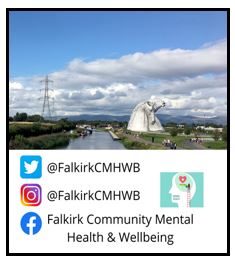Care experienced children and young people
The Independent Care Review (2020) made a number of recommendations, generated The Promise is a commitment to change and re-organise how Scotland thinks, plans and prioritises for children and their families (based on foundations at the heart of this change). ‘Children must be listened to and meaningfully and appropriately involved in decision-making about their care, with all those involved properly listening and responding to what children want and need. There must be a compassionate, caring decision- making culture focused on children and those they trust’ Useful infographics
The Children’s Hearing: What practitioners should know – This resource provides educational practitioners with information about the Children’s Hearing System and resources to help them more effectively support children and families going through this experience.
The Scottish Children’s Reporter Administration (SCRA) (2022) have updated information materials about the role of the Reporter
- New pages on our website for children and young people
- Two cartoon animations – one on the role of the Reporter and another about contacting the Reporter
- An easy read guide for parents and carers
- A BSL video with subtitles and audio
Centre for Excellence for Children’s Care & Protection (CELCIS) Education Forum
Children’s and Young People’s Voices
Falkirk Council Inclusion and Wellbeing Service have produced a booklet to assist conversations with children about the wellbeing indicators and gather their views.
Highland Council (2020) have produced Tools for Gathering the Views of Children and Young People.
Children in Scotland (2022) is working with Education Scotland and the Scottish Government to build knowledge and influence practice development around support for young people with additional support needs in an education setting. Engagement pack available and information about contributing to the project.
Scottish Government (2020) collated access to children and young people’s views, ideas and experiences that have been gathered on a range of topics. If you are planning to engage with children and young people, check for previous engagement on that topic and look at this previous engagement to assist you in considering the different methods that could be used.
NSPCC Learning (2015). Solution-focused practice toolkit. The toolkit provides inspiration for worksheets and activities to use, adapt or devise for the children and young people you work with. The worksheets and activities are designed to be used with children and young people aged 5-19 years old. Ideally for practitioners who already have some training in solution-focused practice.
Child and Adolescent Mental Health Service (CAMHS)
Forth Valley Child and Adolescent Mental Health Service includes CAMHS contact details, information about coming to CAMHS, sources of advice for parents & carers and information about Healios Assessment Services.
ThisMayHelp (NHS) website has a short video and advice called ‘How to prepare for your child’s first CAMHS appointment’
Child Protection
Falkirk Council and Forth Valley child protection policies, procedures & guidelines
Education Scotland have provided Domestic abuse information for educators.
Domestic abuse learning resource for professionals – awareness-raising resource serves as an introduction to domestic abuse and coercive control. The tool provides an overview of the main considerations when responding to domestic abuse, however it does not replace specialist domestic abuse training.
See also sections below: Nurture, Trauma and Adversity & Risk Assessment and Management
Children’s Rights
Education Scotland (2023). Recognising and realising children’s rights: A professional learning resource to promote self-evaluation and improvement planning.
Scottish Government/Parents Club & UNICEF. Your Guide to Children’s Rights and the united nations convention on the rights of the child: A booklet for parents, carers and family members.
Community Mental Health and Wellbeing Services
 Falkirk Community Mental Health and Wellbeing (glowscotland.org.uk)
Falkirk Community Mental Health and Wellbeing (glowscotland.org.uk)
Critical incidents in school communities
UK Trauma Council and Anna Freud National Centre for Children and Families have provided various resources for events that are potentially traumatic and affects a large part or whole of an educational community. The five key principles that can help recovery are safe, calm, connected, in control, hopeful. There are resources for supporting children and adults. The resources are informed by research and best practice to provide a compassionate response to assist children and adults to cope.
